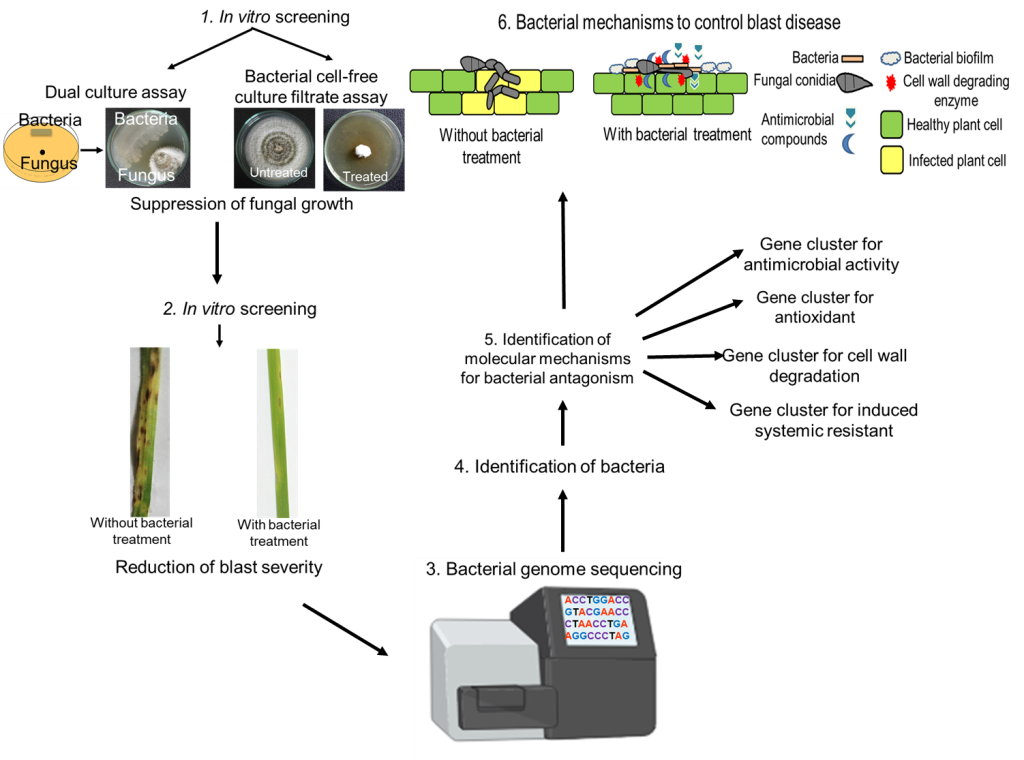Plant diseases are among the major factors affecting plant productivity. Biological control of plant diseases is preferred over chemical control as it is environment-friendly, cost-effective, and sustainable. Among many microbes capable of providing biological control of plant diseases, probiotic Bacillus species are most promising as they can survive in adverse conditions, provide plants with a wide range of benefits including protection from phytopathogens. Wheat blast caused by Magnaporthe oryzae Triticum pathotype (MoT) has emerged as a potential threat to global wheat production. Due to unreliability of fungicides and limited cultivar resistance, we aimed to screen and identify potential antagonist bacteria collected from internal tissues of rice and wheat seeds to determine their in vitro and in vivo inhibitory effects against MoT. Dual culture and seedling assays were performed to evaluate the efficacy of probiotic bacteria. Out of 170 bacterial isolates, three bacteria (BTS-3, BTS-4, and BTLK6A) were screened as potential antagonists against MoT in vitro. Artificial inoculation at the seedling stage showed that the isolates BTS-4, BTS–3, and BTLK6A reduced 89, 88, and 85% of wheat blast disease severity, respectively, compared to mock-inoculated control. The bacterial isolates were identified as Bacillus subtilis (BTS-3) and B. velezensis (BTS-4 and BTLK6A) through genome phylogeny. The whole genome sequence of these three bacterial strains decoded a number of orthologs to intrinsic genes of antimicrobial peptides, antioxidant defense enzymes, cell wall degrading enzymes, compounds involved in the induction of systemic resistance (ISR) in host plants, and volatile compounds to make them promising biologicals to control MoT in wheat. Combined data of in vitro and in vivo along with genome analysis suggest that Bacillus spp. suppress the destructive wheat blast disease likely through antibiosis and ISR in the host plants. Further field evaluation and characterization of antimicrobial compounds are needed for a better understanding of the mode of action and practical recommendation of these bacteria for wheat blast control in the farmers’ fields.

